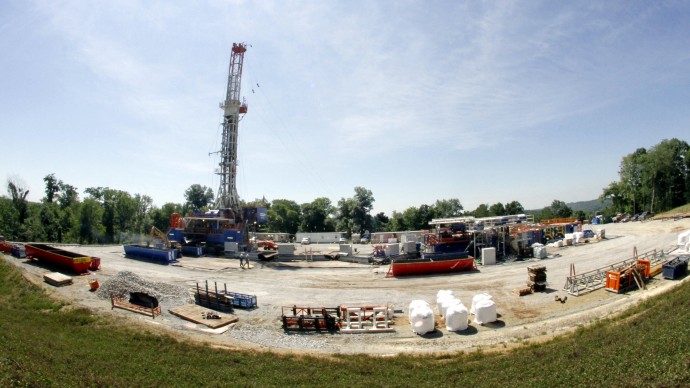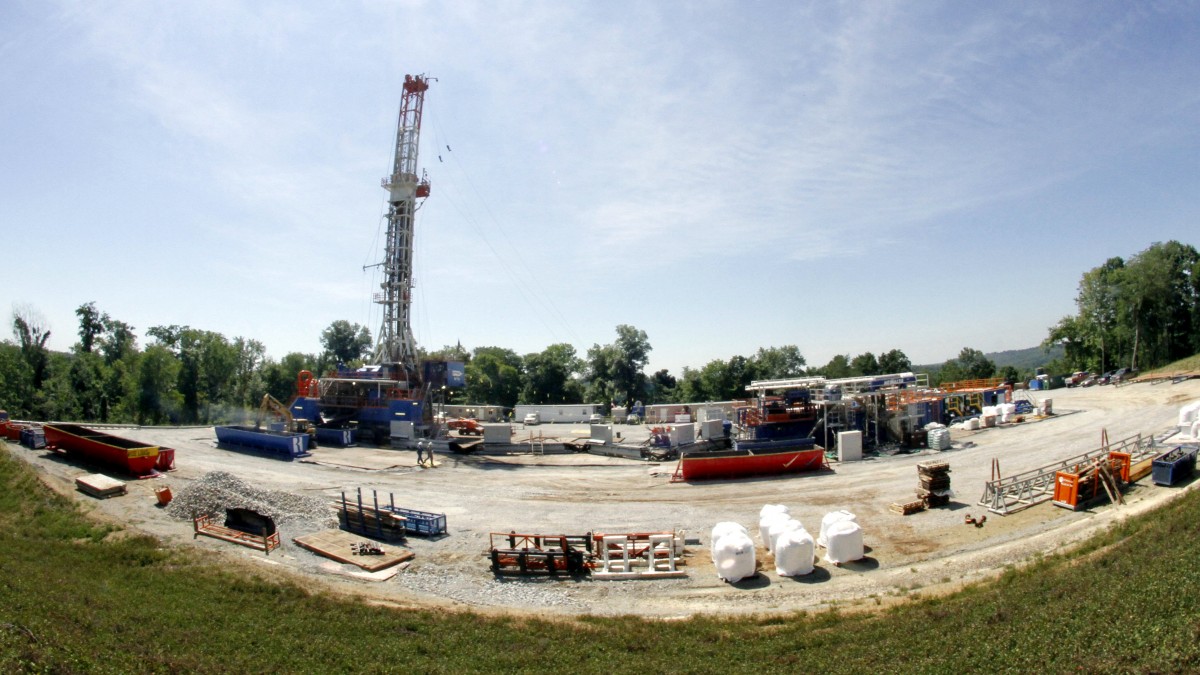
(MintPress)–As Germany plans to outlaw hydraulic fracturing, also known as fracking, Vermont Governor Peter Shumlin is preparing to sign legislation that would ban the practice, providing a precedential victory for environmentalists voicing concerns over contamination of drinking water — and frustrating those who see the hydraulic fracturing as a move toward energy independence.
Vermont does not have shale gas reserves, from which oil is derived during fracking, making the legislation more of a symbolic gesture than functional measure. The state is, however, located near the Marcellus Shale Patch, which stretches through West Virginia, Pennsylvania and New York, among other states. The bill has already cleared the House and Senate; Shumlin has said he will sign the bill into law.
The legislation comes at a time of growing debate in Europe over the issue, as well. Germany’s Environment Minister Norbert Rottgen is openly opposing the practice in the wake of proposals by energy companies to implement fracking as a method of extracting oil in the country. Rottgen, along with Economy Minister Philipp Rosler, cite concerns over potentially toxic chemicals used in the fracking process, which have raised red flags over possible contamination of drinking water in eastern parts of the country, reports the German newspaper Spiegel.
Germany’s recent announcement opposing fracking is nothing new for the nation, known for its environmentally friendly practices. Greenhouse gas emissions were reduced in the country by 18 percent over a 15 year period, according to a report by Time Magazine. It’s also considered a leader in the EU for recycling measures.
Vermont’s message
Vermont currently has no permits on the table for shale oil drilling, which means that the likely ban will not cause a major disruption for oil companies. It does, however, send a message to companies and neighboring states that Vermont does not believe fracking is an environmentally sound practice — a message oil companies are denouncing as “irresponsible.”
In a statement, Rolf Hanson, senior director of state government relations for oil lobbying group American Petroleum Institute (API), said Vermont’s move ignores the need for jobs, government revenue and energy security.
“ … An uninformed ban on a proven technology used for over 60 years is short-sighted and irresponsible, particularly when Vermont benefits year-round from natural gas safely produced in neighboring states and provinces,” Hanson said.
But not everyone is convinced of the safety in neighboring states. The environmental nonprofit group Riverkeeper has been opposed to drilling the Marcellus Shale, which oil companies plan to drill using fracking methods. This, the organization sees, could be a potential problem, citing the fact that fracking requires the injection of toxic chemicals that could make their way into the drinking water. The New York City Watershed, which provides 90 percent of the state’s drinking water, is located on top of the Marcellus Shale.
Throughout New England, fracking protests have become somewhat common among those concerned about long lasting environmental impacts and contamination of drinking water — a problem brought to mainstream attention through the movie, “Gasland,” which tells the story of a couple living near a Pennsylvania fracking site. The film depicts the two lighting their drinking water on fire, due to high levels of methane — a chemical commonly used in the fracking process.
A fractured world
France, the Czech Republic and Bulgaria have already placed moratoriums on fracking, highlighting a growing trend among European nations implementing policies that favor environmental concerns over business.
Not all nations are taking the environmental measures Germany is. Poland has remained steadfast in its mission to continue hydraulic fracturing as a means for the country to produce its own oil.
“Government is determined to let the companies explore and — in the future probably — produce shale gas in Poland,” Tomasz Arabski, head of the Prime Minister’s Office said at a news conference. “The reason is quite simple … Test drillings and fracturing operations executed in Poland were determined to be safe.”
The Associated Press reported a week later that U.S. oil companies were included in the list of those granted permits for exploration test drilling. Production dates for Poland’s shale operations are set for 2014, at which time the country will have access to derived gas.
In the United Kingdom, the practice has been approved by the UK Environmental Agency. Natural Gas Europe reports the head of the Environmental Agency, Lord Chris Smith, gave a nod of approval to the controversial practice, admitting that environmental concerns did exist, but that the nation would ramp up monitoring at and near drill sites.
While EU nations have been split on the measure, Germany’s support of anti-fracking practices highlights the country’s influence in the EU, and whether or not its stance will lead the EU, in general, to implement policies more in line with Germany.
Fracking future in US
While some nations have taken the step to ban fracking, the United States is not likely to follow Germany or Vermont’s lead in an overall halt. Caught in the midst of a battle over environmental concerns and energy independence, the Obama Administration has not outright condemned the practice, but has been careful to take into account concerns over water quality.
In a move to seemingly appease both sides of the argument, President Barack Obama issued a proposal that would require public disclosure of chemicals used on public and Native American land. But as the New York Times reports, the new rule would only allow such disclosure by oil companies after drilling is complete.
That same rule has already been implemented in states with heavy fracking, prompting some state officials to criticize the federal government for implementing an unnecessary action.
“There is no need for the federal government to step in and insert itself into a process that is working well,” Utah Director of Public Land Policy Coordination Kathleen Clarke said in congressional hearing.
The website, fracfocus.org, includes a list of chemicals most commonly used in the fracking process, though specifics as to where and how much of each chemical used is not included.
Oil companies represented by API point to the fact that states and federal regulations are already in place, requiring companies to address environmental issues through monitoring and methods for waste management and disposal.
“Organizations like the State Review of Oil and Natural Gas Environmental Regulations are available to help assess the overall framework of environmental regulations supporting oil and gas operations in any given state,” the API states in a fracking information document.
However, some claim regulations don’t do much good without proper monitoring by outside regulators. Attorney Bruce Baizel, who represents Earthworks, a nonprofit organization, testified before the House Committee on Natural Resources that regular inspections are not carried out in states with heavy fracking practices. In 2010, Baizel reported that 81,000 active wells, which encompasses 89 percent of all state wells, were not monitored by state inspectors. That goes along with 58,000 wells in Ohio that went unchecked and 161,000 wells in Texas — all in 2010.
Baizel argued that inspections alone wouldn’t ensure that contamination of groundwater would be halted completely. In Colorado, he said, spills have increased in the last seven years.
“In fiscal year 2011, 133 of the 513 reported spills contaminated either ground or surface water,” Baizel wrote in his argument.


